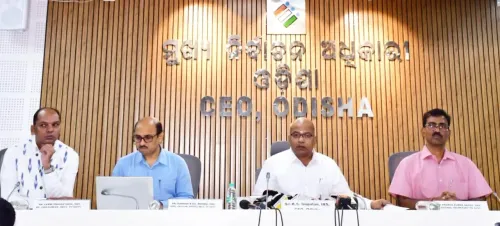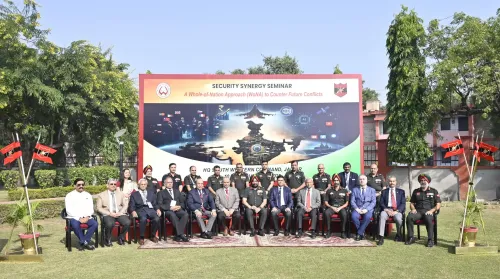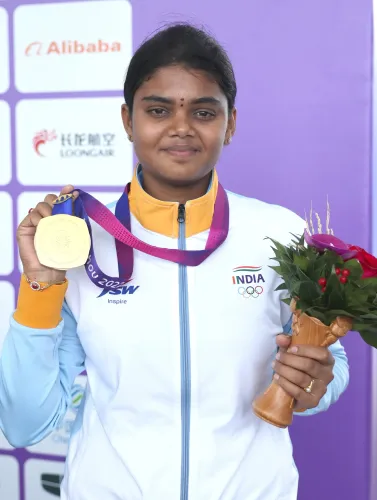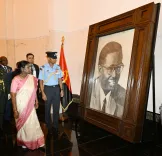UGC Introduces Guidelines for Recognizing Informal Learning in Higher Education
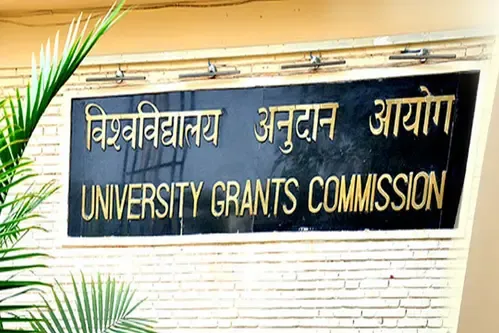
New Delhi, Dec 10 (NationPress) The University Grants Commission (UGC) announced on Tuesday the release of a ‘Draft Guidelines for Implementation of Recognition of Prior Learning (RPL) in Higher Education’. This initiative aims to enhance access to higher education for individuals who have developed skills through non-formal and informal learning.
The UGC indicated that these guidelines create a variety of flexible pathways for individuals with different educational backgrounds to enter higher education, contingent upon their demonstrated competencies.
The guidelines have been made public for additional feedback.
UGC Chairman, M. Jagadesh Kumar, informed IANS: "It is essential to tackle the issues faced by India’s extensive informal workforce, which necessitates formal education and avenues for career growth. Recognition of Prior Learning (RPL) is crucial to the vision of The National Education Policy (NEP) 2020. RPL enables individuals to receive formal acknowledgment for their skills and competencies obtained through informal, non-formal, or experiential learning. This allows them to pursue higher education, achieve formal qualifications, and enhance their employability. The National Credit Framework (NCrF) supports RPL by aiding in the credit recognition of all forms of learning—academic, vocational, and experiential."
Kumar emphasized that RPL facilitates the transformation of skills into recognized qualifications, bridging the gap between real-world experience and formal education to improve career prospects.
He added that RPL plays a significant role in promoting economic growth, social inclusion, and a more skilled workforce. During its meeting on 14th November 2024, the commission endorsed the draft guidelines for implementing RPL, detailing various mechanisms.
“The guidelines also focus on strong governance, quality assurance, and collaboration among policymakers, educational institutions, employers, and assessment bodies to ensure fairness, consistency, and inclusivity during the RPL implementation process. This initiative from the UGC aligns with the NEP 2020’s objective of fostering a holistic and equitable education system,” Kumar added.
He stated that this program will promote a culture of continuous learning to equip individuals with the updated knowledge and skills necessary to adapt to evolving career demands, thereby encouraging Lifelong Learning. It aims to cultivate a capable and adaptable workforce that can navigate the challenges of a rapidly changing labor market.
Kumar mentioned that the UGC is committed to recognizing and valuing experiential learning, granting marginalized groups the opportunity to obtain recognized qualifications, and enhancing their socio-economic status.
“The guidelines aim to facilitate the transition of the workforce from informal work environments to the formal sector by recognizing and validating their skills and knowledge. They are designed to foster social inclusion and equity for disadvantaged groups by acknowledging experiential learning and providing pathways to obtain qualifications,” Kumar stated.
He further noted that it will ensure compliance with regulatory standards in specific sectors by employing qualified personnel. It also aligns with industry requirements by acknowledging prior learning, thus boosting employability and ensuring individuals can effectively meet regulatory expectations.
The initiatives will also certify skills acquired through practical experience, improving job opportunities and career advancement prospects, making individuals more appealing to employers.
Kumar explained that, in this context, the guidelines provide comprehensive instructions and a systematic framework for designing and executing RPL processes in India.
“These guidelines serve multiple key functions, including establishing uniform procedures for assessing and recognizing prior learning across various institutions and programs. This guarantees equitable recognition of RPL and ensures that assessments are conducted impartially, transparently, and consistently, irrespective of an individual’s background,” he said.
Kumar stated that it is essential to implement governance measures and standards to uphold the credibility and reliability of RPL assessments.
“These mechanisms ensure that assessors possess the requisite qualifications and competency, that the assessment methods are valid and dependable, and that the resulting outcomes are trustworthy and reliable,” Kumar concluded.

